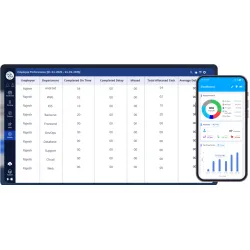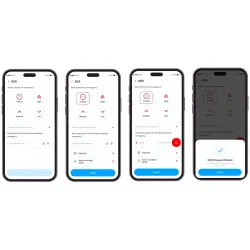
When deploying GPS trackers, dash cams, or any IoT-based system, one of the most overlooked—but crucial—components is the SIM card. While a regular SIM card might seem like a convenient choice, it often fails in demanding machine-to-machine (M2M) applications. That’s where M2M SIM cards come in — purpose-built for reliability, longevity, and control.
Below, we explain what makes M2M SIMs different and why they’re essential for industrial and tracking environments.
What Is an M2M SIM?
An M2M (Machine-to-Machine) SIM is a specialized SIM card designed for communication between machines, such as GPS trackers, telematics devices, smart meters, and industrial equipment. Unlike regular SIMs used in smartphones, M2M SIMs are optimized for:
-
Low-bandwidth, long-term connections
-
Remote management and control
-
Harsh environmental conditions
-
High reliability and data continuity
Key Advantages of M2M SIMs Over Regular SIMs
1. Purpose-Built for Devices
-
M2M SIMs are engineered specifically for machine communication and telemetry.
-
Regular SIMs are designed for consumer voice, SMS, and heavy mobile data — most of which is irrelevant for IoT use cases.
2. Multi-Network Support
-
Many M2M SIMs offer multi-operator access, ensuring automatic switching between local networks (e.g., STC, Zain, Mobily) to maintain signal strength.
-
Regular SIMs are usually locked to one carrier.
3. Remote Management
-
M2M SIMs include access to centralized dashboards for:
-
Remote SIM activation or suspension
-
Monitoring real-time data usage
-
SIM diagnostics and control
-
-
Regular SIMs offer no such tools unless paired with enterprise plans.
4. Security & Control
-
M2M SIMs support:
-
Private APNs
-
Static or public IPs
-
Encrypted connections over VPN
-
-
Regular SIMs lack these enterprise-grade security features.
5. Optimized Data Plans
-
M2M plans are tailored for low-to-moderate data usage (e.g., 10MB–1GB/month), perfect for GPS tracking and sensors.
-
Consumer SIMs are expensive and inefficient for low-data scenarios.
Physical & Build Quality Advantages
Besides functionality, M2M SIMs differ in hardware quality and durability, making them suitable for harsh operating environments.
Here’s a comparison table:
| Feature | M2M SIM (Industrial/IoT) | Regular SIM (Consumer) |
|---|---|---|
| Material Quality | Industrial-grade plastic, reinforced design | Standard consumer-grade plastic |
| Operating Temperature | -40°C to +105°C | -25°C to +85°C |
| Humidity Resistance | High, moisture-proof | Limited |
| Shock & Vibration Resistance | Yes, built for automotive/industrial use | No |
| Corrosion Resistance | Gold-plated or coated contacts | Basic contacts |
| Read/Write Durability | 10–15 years | 1–3 years average use |
| Form Factors | 2FF, 3FF, MFF2 (soldered embedded SIMs) | 2FF, 3FF, 4FF (Nano/Micro removable SIMs) |
| Tamper Resistance | Embedded SIM options available | Easily removable |
| Certifications | ISO/IEC, Automotive-grade | Telecom-grade only |
Where M2M SIMs Are Used
M2M SIMs are essential in sectors where reliability and durability are critical:
-
GPS Trackers for fleets and vehicles
-
Dash cams with LTE connectivity
-
Cold chain monitoring systems
-
Industrial automation (IoT sensors and PLCs)
-
Smart agriculture and livestock tracking
-
Remote security and alarm systems
-
Smart meters and utilities
Why Not Use a Regular SIM?
Using a regular SIM card in an M2M device may work temporarily, but often leads to problems such as:
-
Network disconnection in remote areas due to lack of multi-network fallback
-
Data plan mismatches, leading to excess costs
-
SIM damage in hot, humid, or vibration-heavy conditions
-
No ability to manage or control remotely
For mission-critical operations, a regular SIM simply isn’t reliable or scalable.
Summary
| Feature Area | M2M SIM | Regular SIM |
|---|---|---|
| Network Access | Multi-network, fallback-ready | Single network |
| Device Control | Remote activation, data cap alerts | Manual control only |
| Platform Integration | Centralized management platform | No support |
| SIM Lifespan | 10–15 years | 1–3 years |
| Environment Suitability | Heat, cold, moisture, vibration | Normal indoor use |
Final Thoughts
If you're deploying GPS trackers, dash cams, or IoT devices across Saudi Arabia, M2M SIMs offer the legal, stable, and scalable connectivity needed to maintain performance and control — even in harsh or remote conditions.
For professional applications, the right SIM card isn’t just about data — it's about control, security, and endurance.
Frequently Asked Questions (FAQs)
-
What is an M2M SIM card?
An M2M (Machine-to-Machine) SIM is a specialized SIM card designed for long-term, low-data communication between machines such as GPS trackers, dash cams, sensors, and industrial IoT devices. -
How is an M2M SIM different from a regular SIM?
M2M SIMs are built for durability, remote control, and multi-network reliability. They also support private APNs, operate in extreme conditions, and are ideal for long-term industrial use. Regular SIMs are designed for smartphones and short-term personal use. -
Can I use a regular SIM in a GPS tracker or dash cam?
Technically yes, but it’s not recommended. Regular SIMs lack durability, secure data channels, and remote management features. They’re also not optimized for low data usage or 24/7 connectivity in rough environments. -
What networks do M2M SIMs use in Saudi Arabia?
Quality M2M SIMs support STC, Zain, and Mobily through multi-network fallback or roaming, ensuring reliable signal even in remote areas. -
Are M2M SIMs licensed for use in Saudi Arabia?
Yes—when provided by a CST-approved platform like ZARD, M2M SIMs are fully legal and compliant with Saudi regulations. -
Do M2M SIMs support remote SIM management?
Yes. Most M2M SIMs come with online platforms or portals that allow remote activation, data usage tracking, deactivation, and diagnostics—something not possible with standard SIM cards. -
Are M2M SIMs more expensive than regular SIMs?
The initial cost may be slightly higher, but M2M SIMs are more cost-effective long term due to optimized low-data plans, longer lifespan, and fewer operational issues. -
Can M2M SIMs be embedded in the device?
Yes. Many come in MFF2 embedded form, which is soldered directly to the circuit board. This prevents theft and improves resistance to heat and vibration. -
How long does an M2M SIM last?
Industrial-grade M2M SIMs are built to last 10–15 years, even in harsh environments. Regular SIMs are usually rated for 1–3 years of usage. -
Are M2M SIMs compatible with 4G and LTE devices?
Yes. Most modern M2M SIMs support 4G/LTE connectivity and can switch between networks for optimal performance.


